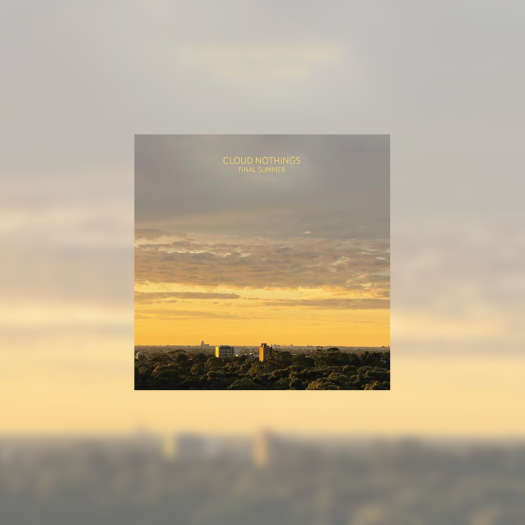A reissue is a double-edged sword: old tracks or entire CDs are unearthed and given them new life by putting them in a contemporary context, and they also serve to codify and document a tradition. It is likely that many of today's vital artists will find fame only when the reissue of their tracks begins ask almost any reggae artist from the 70s. It's tempting to stop there and say that reissues distort history, but that ignores the larger implications of musical exchange.
The compilation series Ultimate Breaks and Beats holds a special place in many a DJs heart. This series (more than 25 in all) is the torah of hip-hop the majority of hip-hop tracks before 1988 sampled tracks from these sets. These weren't greatest hits collections in the K-Tel sense, they were compiled from very diverse sources not because they were big hits, but because they had one thing in common: each had a monster break. Some of these, like the Soul Searchers "Ashley's Roachclip, James Brown's "Funky Drummer, and Funkadelic's "Good Old Music have been used so frequently since then that they've taken on lives of their own. These were the tracks made famous by Kool Herc and Grandmaster Flash in rap's embryonic stages in the 70s. But some of the tracks on these collections were already 15 years old by the time UBB came out.
They were among the first reissues albums that compiled songs along a theme, because the demand for that theme was perceived to exist. Right away the link between a business opportunity and a grassroots movement was established. Some early DJs scoffed at these compilations, preferring to spin the originals in the great Jamaican sound system tradition. But tracks from these compilations, and others of the same period, made their way into the music. It was no accident that the late 80s were dominated by reissued James Brown tracks Rob Base's "It Takes Two" was released mere months after JB's Funky People Part 1 featured Lyn Collins "Think," a 15-year-old track at that point. The RZA brilliantly used obscure sources from the Stax/Volt catalogue (the first Stax box set came out in 1991, the first Wu singles in 1992) on Wu-related productions.
If anything, current DJs of classic sounds are even more zealous in promoting the ultimate authenticity of the original vinyl sources, while dismissing anything on CD. DJs have created a much larger, international market for classic tunes. The reissues that showcase these older tracks usually appear when new offshoots or revivals of classic sounds gain popularity. By promoting older tracks that DJs have revived, marketers can use terms like "classic or "legendary.
Do tracks lose their "underground value if they are reissued? What about their use in advertising? Is it "stealing cool to use these tracks to market a product? While DJs are the taste-makers who create these trends, it is the audience who takes them outside the clubs the patrons themselves are taste-makers. In their day job guises, they could well have the means to popularise the tunes they heard the night before. They're in advertising firms, theyre journalists and they are music supervisors for movies. These may be some of the most ardent club-goers and CD purchasers, because they have the disposable income to do so. Should they be demonised because they can afford to be the people to whom DJs play? Have they learned their club lessons too well when the ad campaign for Guy Ritchies Snatch puts one of the fabled hip-hop breaks of all time, the Incredible Bongo Bands "Apache, into our living rooms every 15 minutes last fall?
Reissues & compilations take the piss out of anyone who builds their rep on exclusivity everyone is just a link in the pop culture chain, and its unfair to demonise one side of it while championing the other when the demons and hipsters are often one in the same. The weakness/strength is that these reissues take the original tracks further out of context of the originals, possibly distorting, but also potentially reconsidering the original artists work. So whatever you do, don't try to be a purist. Whether you hear fresh sounds on a reissue, in a club, in an ad, or over the internet, its just one more channel. Dont let the perception of that delivery channel change your point of view on the music itself. Listen to or make your music however you want, however it's available to you, no matter its vintage. Take advantage of this age in which more music is available to more people than any other time in history. Be assured that your latest discovery, new or old, we be rediscovered somewhere down the line, you can only bring your point of view to whoever is enjoying it.
The compilation series Ultimate Breaks and Beats holds a special place in many a DJs heart. This series (more than 25 in all) is the torah of hip-hop the majority of hip-hop tracks before 1988 sampled tracks from these sets. These weren't greatest hits collections in the K-Tel sense, they were compiled from very diverse sources not because they were big hits, but because they had one thing in common: each had a monster break. Some of these, like the Soul Searchers "Ashley's Roachclip, James Brown's "Funky Drummer, and Funkadelic's "Good Old Music have been used so frequently since then that they've taken on lives of their own. These were the tracks made famous by Kool Herc and Grandmaster Flash in rap's embryonic stages in the 70s. But some of the tracks on these collections were already 15 years old by the time UBB came out.
They were among the first reissues albums that compiled songs along a theme, because the demand for that theme was perceived to exist. Right away the link between a business opportunity and a grassroots movement was established. Some early DJs scoffed at these compilations, preferring to spin the originals in the great Jamaican sound system tradition. But tracks from these compilations, and others of the same period, made their way into the music. It was no accident that the late 80s were dominated by reissued James Brown tracks Rob Base's "It Takes Two" was released mere months after JB's Funky People Part 1 featured Lyn Collins "Think," a 15-year-old track at that point. The RZA brilliantly used obscure sources from the Stax/Volt catalogue (the first Stax box set came out in 1991, the first Wu singles in 1992) on Wu-related productions.
If anything, current DJs of classic sounds are even more zealous in promoting the ultimate authenticity of the original vinyl sources, while dismissing anything on CD. DJs have created a much larger, international market for classic tunes. The reissues that showcase these older tracks usually appear when new offshoots or revivals of classic sounds gain popularity. By promoting older tracks that DJs have revived, marketers can use terms like "classic or "legendary.
Do tracks lose their "underground value if they are reissued? What about their use in advertising? Is it "stealing cool to use these tracks to market a product? While DJs are the taste-makers who create these trends, it is the audience who takes them outside the clubs the patrons themselves are taste-makers. In their day job guises, they could well have the means to popularise the tunes they heard the night before. They're in advertising firms, theyre journalists and they are music supervisors for movies. These may be some of the most ardent club-goers and CD purchasers, because they have the disposable income to do so. Should they be demonised because they can afford to be the people to whom DJs play? Have they learned their club lessons too well when the ad campaign for Guy Ritchies Snatch puts one of the fabled hip-hop breaks of all time, the Incredible Bongo Bands "Apache, into our living rooms every 15 minutes last fall?
Reissues & compilations take the piss out of anyone who builds their rep on exclusivity everyone is just a link in the pop culture chain, and its unfair to demonise one side of it while championing the other when the demons and hipsters are often one in the same. The weakness/strength is that these reissues take the original tracks further out of context of the originals, possibly distorting, but also potentially reconsidering the original artists work. So whatever you do, don't try to be a purist. Whether you hear fresh sounds on a reissue, in a club, in an ad, or over the internet, its just one more channel. Dont let the perception of that delivery channel change your point of view on the music itself. Listen to or make your music however you want, however it's available to you, no matter its vintage. Take advantage of this age in which more music is available to more people than any other time in history. Be assured that your latest discovery, new or old, we be rediscovered somewhere down the line, you can only bring your point of view to whoever is enjoying it.




